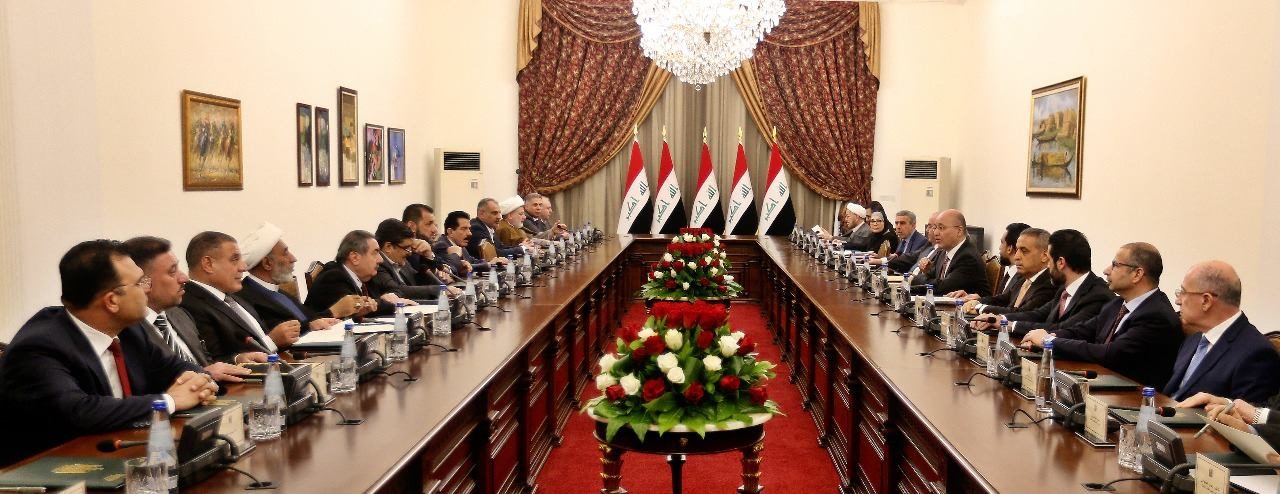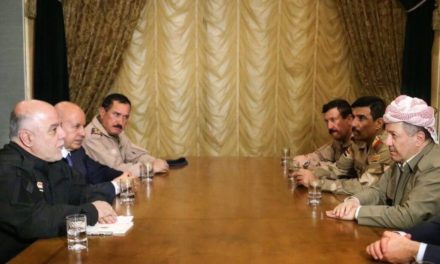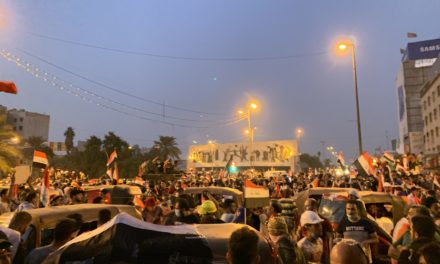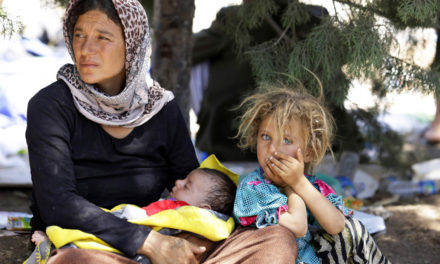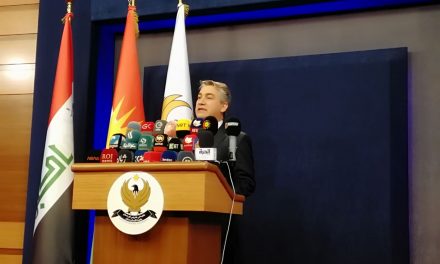In a recent televised interview, former Prime Minister Haider Al-Abadi reiterated a point he has made many times since his term ended, that certain powers in Iran were responsible for ending the possibility for a second term. Al-Abadi claims that they were able to interfere within his Nasr coalition and force certain members to leave and weaken his numbers in forming the largest bloc in order to form the next government. Foreign interference from the likes of Iran and the United States is deeply problematic and the ability to have influence amongst Iraq’s political parties to sway decisions stems from the weakness of Iraq’s political parties and the current political class has done little to stop it.
What makes Iraqi politics susceptible to foreign interference is not the way in which the political system has been set up post-2003, but rather the political actors at play. Iraq’s main political parties are weak and have shown little appetite in the past 16 years for growth or becoming stronger. This is shown in the latest election results where no coalition has come close to forming a majority. The closest to do so were former Prime Minister Ayad Allawi’s Iraqi National Movement that won 91 seats and former Prime Minister Nouri Al-Maliki’s State of Law that won 89 seats in 2010 and then 92 in 2014. Allawi’s list fell significantly in 2014 and State of Law lost over two-thirds of its seats in 2018 from the previous election. This meant the Sadrist Movement under the coalition of Sairoon won the most seats, but only had 54, nowhere near the numbers Al-Maliki and Allawi were able to achieve in previous elections and even further from obtaining enough seats to form a majority.
While Muqtada Al-Sadr’s coalition gained seats from the previous election, when looking at the number of votes they received, it is very similar to that of 2014 and so they only benefited from the lower voter turnout, rather than an expansion of their voter base. This is the same for the Kurdistan Democratic Party (KDP). They managed to keep their 25 seats, while it was the Patriotic Union of Kurdistan (PUK) and Gorran that lost seats to newly formed “opposition” parties such as the New Generation Movement and the Coalition for Democracy and Justice (CDJ).
This means that parties with a cult following like Muqtada Al-Sadr’s Sadrist Movement and Massoud Barzani’s KDP are strong enough to maintain their voter base, but they offer little to gain the support of others. Al-Sadr’s support depends on his family legacy and those that have stood by his father and him for many years while the same is true for Massoud Barzani. Barzani too carries on his father’s legacy. Flying the banner of an independent Kurdistan has not won over any support for the KDP outside of the Kurdistan Region and many non-KDP supporters in Kurdistan are either suspicious of the likelihood of an independent Kurdistan or the ability in Barzani to deliver it.
Political leaders that have formed a new movement recently have been unsuccessful in proving their new party is created on a vision for Iraq rather than a personal political project. There have been numerous political splinters based on egos and individual aspirations. Ammar Al-Hakim left his late father’s political party to lead his own, getting rid of the senior leadership in his old party while keeping his old party’s support base. President Barham Salih attempted to do the same when leaving the PUK and forming the CDJ, only to win two seats in the 2018 election. His personal following wasn’t large enough to make his new party a significant player but his political connections in Baghdad were enough for the PUK to welcome him back and have him elected president, leaving his newly formed political party and its two seats in parliament impotent.
Former Prime Minister Haider Al-Abadi did not manage to replicate the election results of Al-Maliki in 2010 and 2014 as the incumbent prime minister, but he was still far more successful than the likes of Barham Salih and Ammar Al-Hakim with his Nasr coalition winning 42 seats. This was due to the fact that Al-Abadi had significant achievements in the past four years to back his campaign, but his coalition was not strong enough nor built around his vision, rather out of political opportunism from others leeching off Al-Abadi’s time in office. This is why Falih Al-Fayyadh, who did not run in the elections as a candidate, had a political bloc run under the Nasr coalition only to leave when it came to negotiating and forming the largest bloc. This is the splintering Al-Abadi claimed was orchestrated by Iranian actors, which prevented his second term in office.
Political parties’ easy splintering and their offshoots’ inability to build a significant support base to grow is a serious problem for Iraq’s future. The political scene in Iraq may be moving away from sectarian rhetoric and focusing more on needs-based issues, which is positive and important for Iraq to develop, but it has yet to produce a political movement with a leader that is able to unite politicians, technocrats and citizens from all factions of Iraq to lead the country.
Certain politicians have shown good intentions and have acknowledged certain challenges that Iraq is facing, but none have offered practical solutions on how to resolve Iraq’s problems both on the campaign trail and in government. Al-Abadi’s Nasr and Al-Hakim’s Hikma have the opportunity in the next three years to build a true political institution, develop a vision for the country and a real political platform for Iraqis to vote for in 2022 and beyond. However, it is likely they could become just more political pet projects of their leaders that will either disintegrate in the face of foreign intervention or domestic challenges.
It is crucial for Iraq to have a genuine political movement develop because it is unlikely that the current government with a prime minister and president that have little political backing in the legislative branch and political scene altogether will be able to implement the reforms needed to have a better functioning state. What plagues Iraq today is not the democratic-republic system, rather the ineffective parties within it.

Hamzeh Hadad
Hamzeh Hadad is an Iraqi writer and commentator. He is currently a Master of Arts candidate at the Norman Paterson School of International Affairs.

